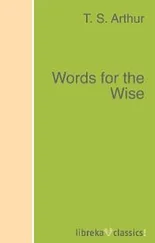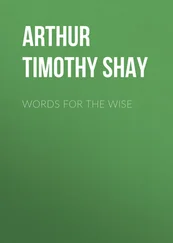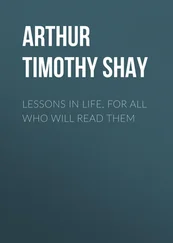Timothy Arthur - All's for the Best
Здесь есть возможность читать онлайн «Timothy Arthur - All's for the Best» — ознакомительный отрывок электронной книги совершенно бесплатно, а после прочтения отрывка купить полную версию. В некоторых случаях можно слушать аудио, скачать через торрент в формате fb2 и присутствует краткое содержание. Издательство: Иностранный паблик, Жанр: foreign_sf, literature_19, foreign_antique, foreign_prose, на английском языке. Описание произведения, (предисловие) а так же отзывы посетителей доступны на портале библиотеки ЛибКат.
- Название:All's for the Best
- Автор:
- Издательство:Иностранный паблик
- Жанр:
- Год:неизвестен
- ISBN:нет данных
- Рейтинг книги:4 / 5. Голосов: 1
-
Избранное:Добавить в избранное
- Отзывы:
-
Ваша оценка:
- 80
- 1
- 2
- 3
- 4
- 5
All's for the Best: краткое содержание, описание и аннотация
Предлагаем к чтению аннотацию, описание, краткое содержание или предисловие (зависит от того, что написал сам автор книги «All's for the Best»). Если вы не нашли необходимую информацию о книге — напишите в комментариях, мы постараемся отыскать её.
All's for the Best — читать онлайн ознакомительный отрывок
Ниже представлен текст книги, разбитый по страницам. Система сохранения места последней прочитанной страницы, позволяет с удобством читать онлайн бесплатно книгу «All's for the Best», без необходимости каждый раз заново искать на чём Вы остановились. Поставьте закладку, и сможете в любой момент перейти на страницу, на которой закончили чтение.
Интервал:
Закладка:
T. S. Arthur
All's for the Best
I
FAITH AND PATIENCE
" I HAVE no faith in anything," said a poor doubter, who had trusted in human prudence, and been disappointed; who had endeavored to walk by the lumine of self-derived intelligence, instead of by the light of divine truth, and so lost his way in the world. He was fifty years old! What a sad confession for a man thus far on the journey of life. "No faith in anything."
"You have faith in God, Mr. Fanshaw," replied the gentleman to whom the remark was made.
"In God? I don't know him." And Mr. Fanshaw shook his head, in a bewildered sort of way. There was no levity in his manner. "People talk a great deal about God, and their knowledge of him," he added, but not irreverently. "I think there is often more of pious cant in all this than of living experience. You speak about faith in God. What is the ground of your faith?"
"We have internal sight, as well as external sight."
There was no response to this in Mr. Fanshaw's face.
"We can see with the mind, as well as with the eyes."
"How?"
"An architect sees the building, in all its fine proportions, with the eyes of his mind, before it exists in space visible to his bodily eyes."
"Oh! that is your meaning, friend Wilkins," said Mr. Fanshaw, his countenance brightening a little.
"In part," was replied. "That he can see the building in his mind, establishes the fact of internal sight."
"Admitted; and what then?"
"Admitted, and we pass into a new world—the world of spirit."
Mr. Fanshaw shook his head, and closed his lips tightly.
"I don't believe in spirits," he answered.
"You believe in your own spirit."
"I don't know that I have any spirit."
"You think and feel in a region distinct from the body," said Mr. Wilkins.
"I can't say as to that."
"You can think of justice, of equity, of liberty?"
"Yes."
"As abstract rights; as things essential, and out of the region of simple matter. The body doesn't think; it is the soul."
"Very well. For argument's sake, let all this be granted. I don't wish to cavil. I am in no mood for that. And now, as to the ground of your faith in God."
"Convictions," answered Mr. Wilkins, "are real things to a man. Impressions are one thing; convictions another. The first are like images on a glass; the others like figures in a textile fabric. The first are made in an instant of time, and often pass as quickly; the latter are slowly wrought in the loom of life, through daily experience and careful thought. Herein lies the ground of my faith in God;—it is an inwrought conviction. First I had the child's sweet faith transfused into my soul with a mother's love, and unshadowed by a single doubt. Then, on growing older, as I read the Bible, which I believe to be God's word, I saw that its precepts were divine, and so the child's faith was succeeded by rational sight. Afterwards, as I floated off into the world, and met with storms that wrecked my fondest hopes; with baffling winds and adverse currents; with perils and disappointments, faith wavered sometimes; and sometimes, when the skies were dark and threatening, my mind gave way to doubts. But, always after the storm passed, and the sun came out again, have I found my vessel unharmed, with a freight ready for shipment of value far beyond what I had lost. I have thrown over, in stress of weather, to save myself from being engulfed, things that I had held to be very precious—thrown them over, weeping. But, after awhile, things more precious took their place—goodly pearls, found in a farther voyage, which, but for my loss, would not have been ventured.
"Always am I seeing the hand of Providence—always proving the divine announcement, 'The very hairs of your head are numbered.' Is there not ground for faith here? If the word of God stand in agreement with reason and experience, shall I not have faith? If my convictions are clear, to disbelieve is impossible."
"We started differently," replied Mr. Fanshaw, almost mournfully. "That sweet faith of childhood, to which you have referred, was never mine."
"The faith of manhood is stronger, because it rests on reason and experience," said Mr. Wilkins.
"With me, reason and experience give no faith in God, and no hope in the future. All before me is dark."
"Simply, because you do not use your reason aright, nor read your experiences correctly. If you were to do this, light would fall upon your way. You said, a little while ago, that you had no faith in anything. You spoke without due reflection."
"No; I meant just what I said. Is there stability in anything? In what can I trust to-morrow? simply in nothing. My house may be in ruins—burnt to the ground, at daylight. The friend to whom I loaned my money to-day, to help him in his need, may fail me to-morrow, in my need. The bank in which I hold stock may break—the ship in which I have an adventure, go down at sea. But why enumerate? I am sure of nothing."
"Not even of the love of your child?"
A warm flush came into the face of Mr. Fanshaw. He had one daughter twelve years old.
"Dear Alice!" he murmured, in a softer voice. "Yes, I am sure of that. There is no room for doubt. She loves me."
"One thing in which to have faith," said Mr. Wilkins. "Not in a house which cannot be made wholly safe from fire; nor in a bank, which may fail; nor in a friend's promise; nor in a ship at sea—but in love! Are you afraid to have that love tried? If you were sick or in misfortune, would it grow dim, or perish? Nay, would it not be intensified?
"I think, Mr. Fanshaw," continued his friend, "that you have not tested your faith by higher and better things—by things real and substantial."
"What is more real than a house, or a ship, or a bill of exchange?" asked Mr. Fanshaw.
"Imperishable love—incorruptible integrity—unflinching honor," was replied.
"Do these exist?" Mr. Fanshaw looked incredulous.
"We know that they exist. You know that they exist. History, observation, experience, reason, all come to the proof. We doubt but in the face of conviction. Are these not higher and nobler things than wealth, or worldly honors; than place or power? And is he not serenest and happiest whose life rests on these as a house upon its foundations? You cannot shake such a man. You cannot throw him down. Wealth may go, and friends drop away like withering autumn leaves, but he stands fast, with the light of heaven upon his brow. He has faith in virtue—he has trust in God—he knows that all will come out right in the end, and that he will be a wiser and better man for the trial that tested his principles—for the storms that toughened, but did not break the fibres of his soul."
"You lift me into a new region of thought," said Mr. Fanshaw, "A dim light is breaking into my mind. I see things in a relation not perceived before."
"Will you call with me on an old friend?" asked Mr. Wilkins.
"Who?"
"A poor man. Once rich."
"He might feel my visit as an intrusion."
"No."
"What reduced him to poverty?"
"A friend, in whom he put unlimited faith, deceived and ruined him."
"Ah!"
"And he has never been able to recover himself."
"What is his state of mind?"
"You shall judge for yourself."
In poor lodgings they found a man far past the prime of life. He was in feeble health, and for over two months had not been able to go out and attend to business. His wife was dead, and his children absent. Of all this Mr. Fanshaw had been told on the way. His surprise was real, when he saw, instead of a sad-looking, disappointed and suffering person, a cheerful old man, whose face warmed up on their entrance, as if sunshine were melting over it. Conversation turned in the direction Mr. Wilkins desired it to take, and the question soon came, naturally, from Mr. Fanshaw—
Читать дальшеИнтервал:
Закладка:
Похожие книги на «All's for the Best»
Представляем Вашему вниманию похожие книги на «All's for the Best» списком для выбора. Мы отобрали схожую по названию и смыслу литературу в надежде предоставить читателям больше вариантов отыскать новые, интересные, ещё непрочитанные произведения.
Обсуждение, отзывы о книге «All's for the Best» и просто собственные мнения читателей. Оставьте ваши комментарии, напишите, что Вы думаете о произведении, его смысле или главных героях. Укажите что конкретно понравилось, а что нет, и почему Вы так считаете.












